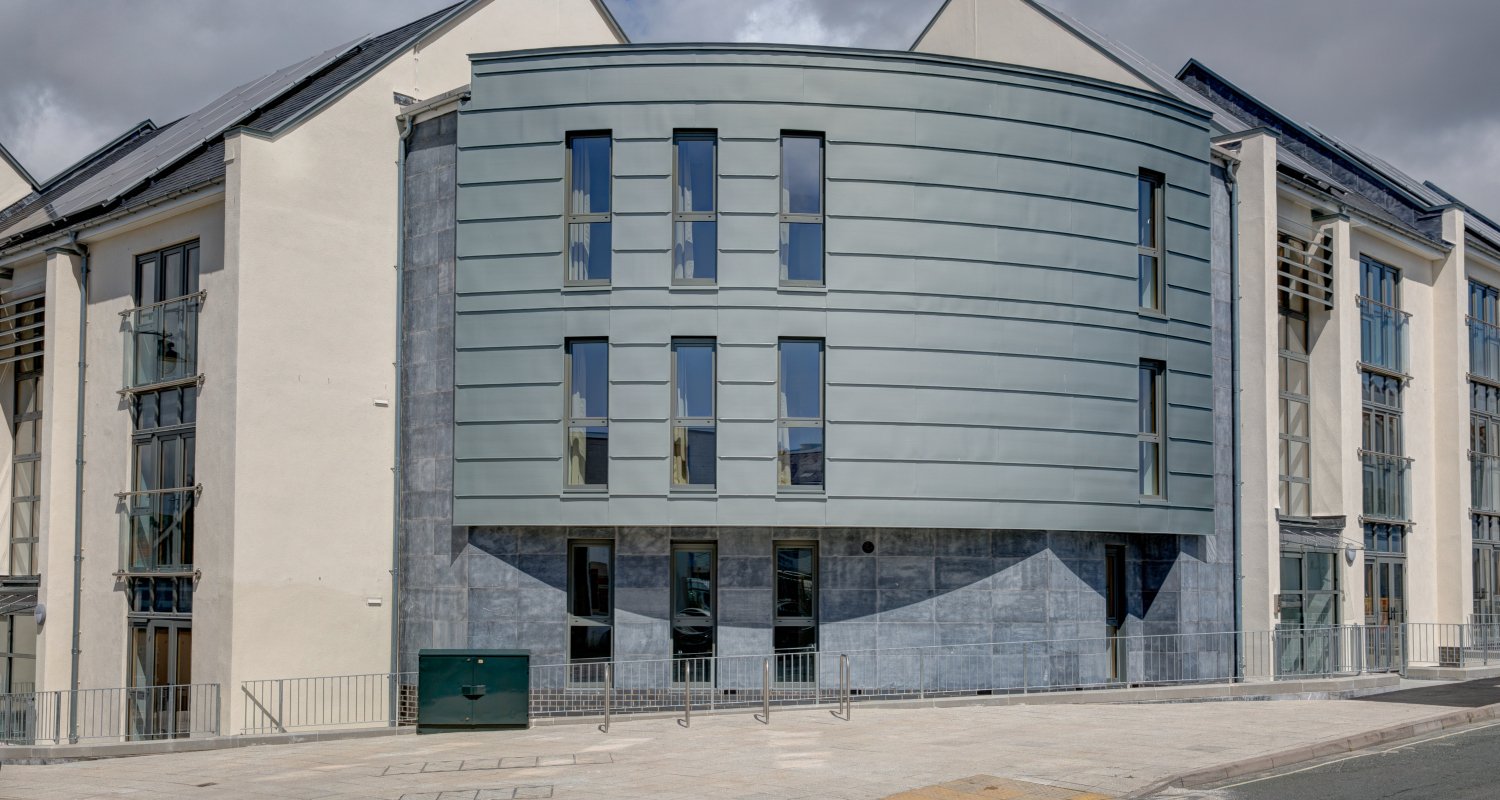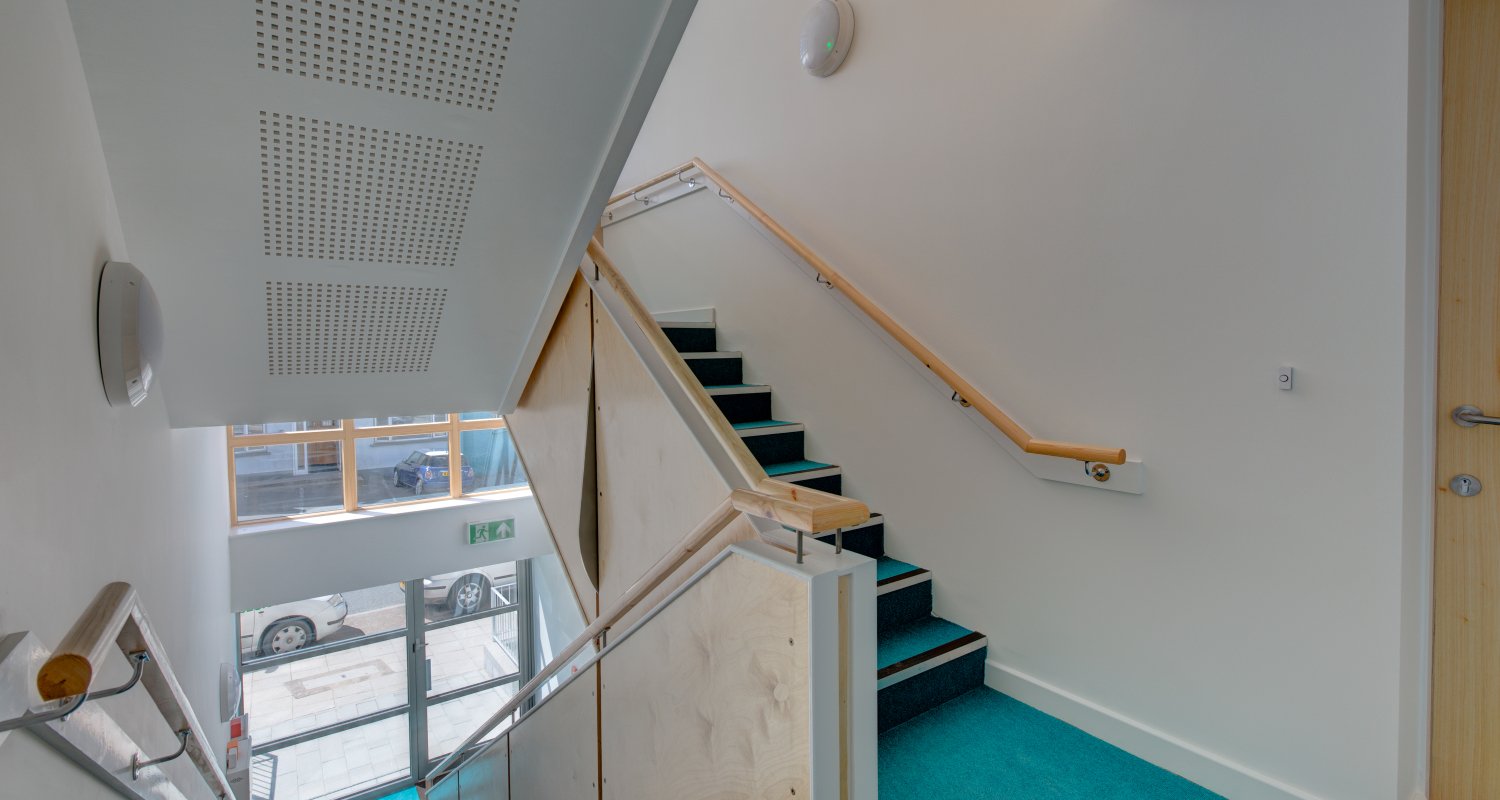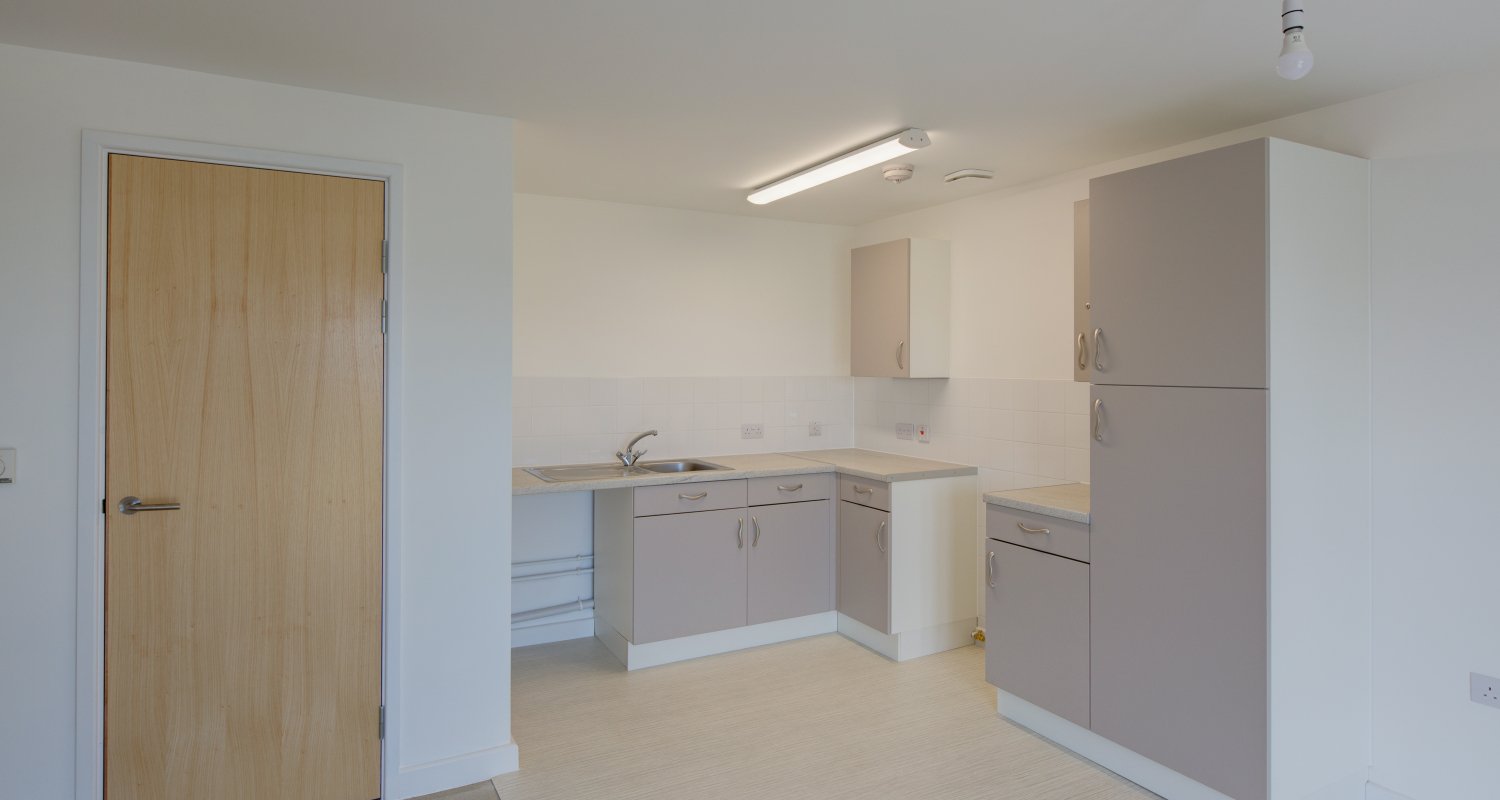The Nelson Project
Having undertaken a similar project in Bristol, the Community Self Build Agency (CBSA) recruited a team of veterans to help build their own homes on the site of a former centre for disabled people in George Place, Plymouth City Centre. A total of 24 one-bedroom apartments were constructed for Devon and Cornwall Housing and Plymouth City Council. 12 of the homes were allocated to the self-building veterans, six of the homes were allocated to those with learning disabilities and the remaining six were allocated for general needs affordable rent.
Local architect Form Design specified the use of lightweight blocks in order to achieve ‘Robust Details’ for acoustic and thermal performance. Phil Roberts, Senior Design Manager at Interserve said: “Although other lightweight blocks were initially considered, in the end we chose to use H+H Celcon Blocks. This decision was made primarily on the company reputation of H+H”.
H+H 100mm High Strength Blocks 7.3N and 140mm Standard Grade Blocks 7.3N were used for the outer leaf on the external cavity wall to meet Robust Details E-WM-23 and 24. Two leaves of the High Strength aircrete blocks were used with traditional mortar and a 100mm cavity in between. The fully filled cavity solutions, designed to address the thermal insulation requirements of Part L, have the added benefit of providing a high acoustic performance which exceeds the requirements of Part E of the Building Regulations. Phil said it was very straightforward to use the blocks and Interserve experienced no problems with using the product.
The lightweight nature of aircrete leads to a number of functional and financial advantages when compared to more traditional building material as aircrete is less than half the weight of the equivalent dense aggregate block, which had been originally specified. The lightweight properties of the H+H Celcon Blocks was a key benefit for the veterans; most of whom had never worked on a construction site before.




